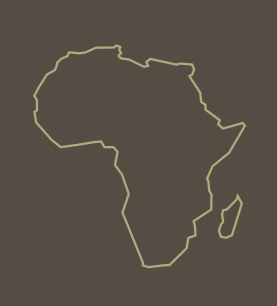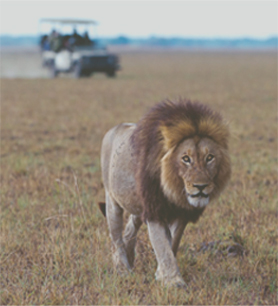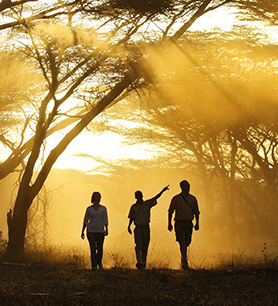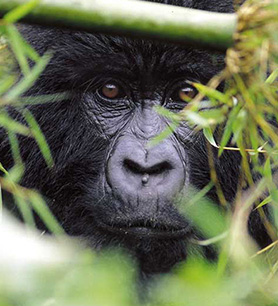We provide you with an essential practical guide, a compass to use before and during the journey, so that you can start your safari in South Africa with all the necessary and useful tools. It is a guide that we have compiled over many years by, gathering notes, suggestions and valuable information to better answer your frequently asked questions regarding your journey and stay. We want your safari to be safe, comfortable and carefully planned down to the smallest detail. If you do not find all the answers to your questions, we are always available to expand on any topic, dissolve any doubts and satisfy any curiosity.

South Africa in brief
- Capital: Pretoria
- Population: around 55 million
- Extension: 1,221,000 km2
- Local time: GMT +2
- Language: 11 official languages including English and Afrikaans
- Currency: South African Rand (ZAR)
- International code: + 277

Luggage
We recommend that you limit your luggage to two bags per person, hand luggage included. Soft bags must be used as they are easier to transport and to stow. Internal flights to private game reserves are run by light aircrafts usually setting a weight limit of 15-20 kg per person, hand luggage excluded. Most lodges offer a daily laundry service, usually by hand and not always included in the price.

Security
South Africa is a democratic country, its population is hospitable and the crime rate against tourists is low. Nonetheless, we recommend caution and common sense when travelling, especially in the cities and at night. Never display valuables and always keep them in a safe place. Wildlife is unpredictable and can be dangerous. Most lodges are not fenced in and are located in wild areas where animals roam free. Do not touch animals, do not feed them, do not approach them on foot if you are not accompanied by a guide, and do not make a noise which could attract or scare the animals.

Insurance
It is mandatory to have a proper travel insurance for the duration of the journey covering medical expenses, lost luggage and travel cancellation. Proof of the insurance coverage must be given before departure from your home country.

Electricity
The electric current in South Africa is 220/240 V. Some lodges provide electricity through solar panels and generators, sometimes at set times in the morning and after sunset. Others do not have plug sockets in the rooms, but offer mobile phone, camera and other device recharging facilities at the reception or in the communal areas. Plug sockets are two round pins (EU) or three round pins (SA), so we advise you to bring along a universal adaptor. We recommend that you bring along a flashlight for use at night.

Photography
We recommend that you ask for permission before taking pictures of people. Do not take pictures of military personnel and public buildings such as airports or military bases. Never use the flash when you take pictures of animals. It is advisable to bring along a camera, with backup memory cards and batteries, and binoculars.

What to wear
We advise you to wear casual and comfortable clothes. Do not forget the temperature difference between day and night, especially in the desert areas and during winter. For outdoor activities we advise you to wear multiple layers of clothing, so that you can easily remove them when the temperature rises. We recommend you wear soft colours, especially tops or shirts and long trousers for protection against sun and insects, a fleece or a warm sweater, a windbreaker, comfortable trekking shoes and flip flops. Do not forget cap, sunglasses and a swimsuit during summer. In winter we advice to also pack a scarf, gloves and wool hat. Lodges often offer blankets and hot drinks for outdoor activities during the coldest hours. If you are including a stay in Cape Town and in the Cape Winelands a smart casual outfit is recommended, especially if you are considering a dining experience in one of the world-class restaurant of the area.

Health
We advise you to contact your doctor or health service to find out about anti-malarial prophylaxis and recommended vaccines that might vary according to seasons and destinations. Upon arrival in South Africa, travellers coming from areas where yellow fever is endemic may be requested to exhibit a yellow fever vaccination certificate. Do not forget spray against mosquitoes and high protection sunscreen.

Passports and visas
A passport valid for at least 6 months with at least two blank pages and the regular tourist visa are required to enter South Africa for EU citizens. The tourist visa is issued upon arrival at the border and it is valid for maximum 90 days. When travelling with minors, also in transit, you have to provide an unabridged birth certificate. We advise you to have copies of your personal documents.

Payments
In the lodges accommodation is generally “all inclusive”, so it is not necessary to carry much cash in foreign or local currency. South African Rand (ZAR) is the most used currency for payments, although US Dollar (USD) and Euro (EUR) are also commonly accepted. In the lodges it is advisable to leave a tip of 10-20 USD per person per day for the guide and 5-10 USD per person per day for the staff. In restaurants it is customary to leave a tip equal to 10% of the bill. Most lodges, shops and restaurants accept major credit cards, but not all petrol stations accept card payments. Lodges often offer a currency exchange service for the main currencies. Nonetheless, we advise that you exchange currency and withdraw cash from ATMs or banks in the main cities.

Telephone and internet
Mobile phone reception is excellent in the main cities, but can be erratic or absent in remote areas. Usually communication between lodges in these areas happens via radio or satellite phone. Most lodges have internet connection, accessible at the reception or in the communal areas.

Recommended readings
- Long walk to freedom – Nelson Mandela
- Disgrace – J.M. Coetzee
- Country of my skull – Antjie Krong
- Cry, the beloved country – Alan Paton
- Burger’s daughter – Nadine Gordimer
- Adrift on the open veld (including commando) – Denys Reitz
- My traitor's heart – Riaan Malan
- Jock of the bushveld – Percy Fitzpatrick
- Dinosaurs, diamonds & democracy: a short, short history of South Africa – Francis Wilson
- Game ranger in your backpack – Megan Emmett and Sean Pattrick
- Roberts birds of Southern Africa – Hugh Chittenden and Guy Upfold
- The safari companion: a guide to watching African mammals – Richard Estes





